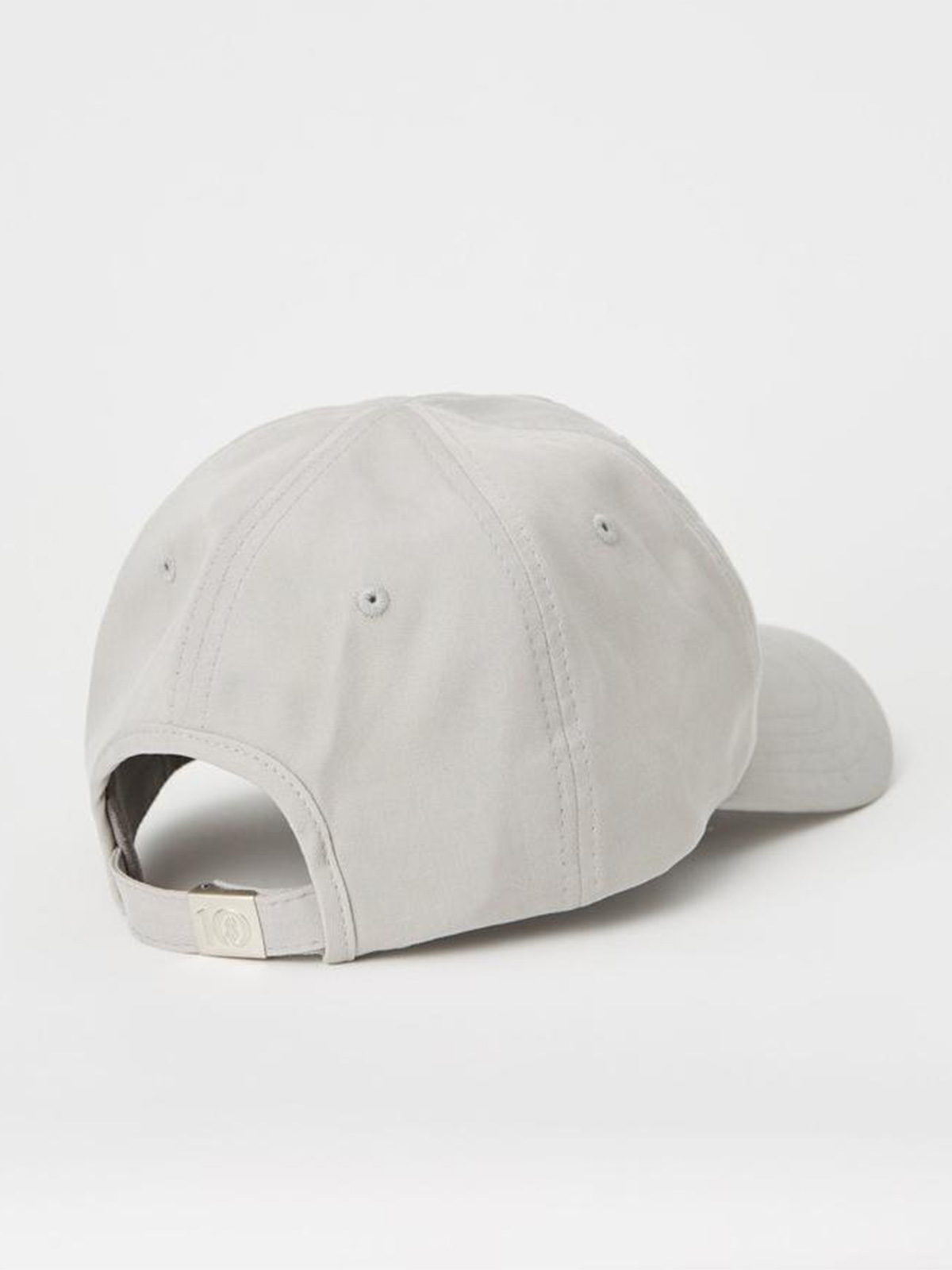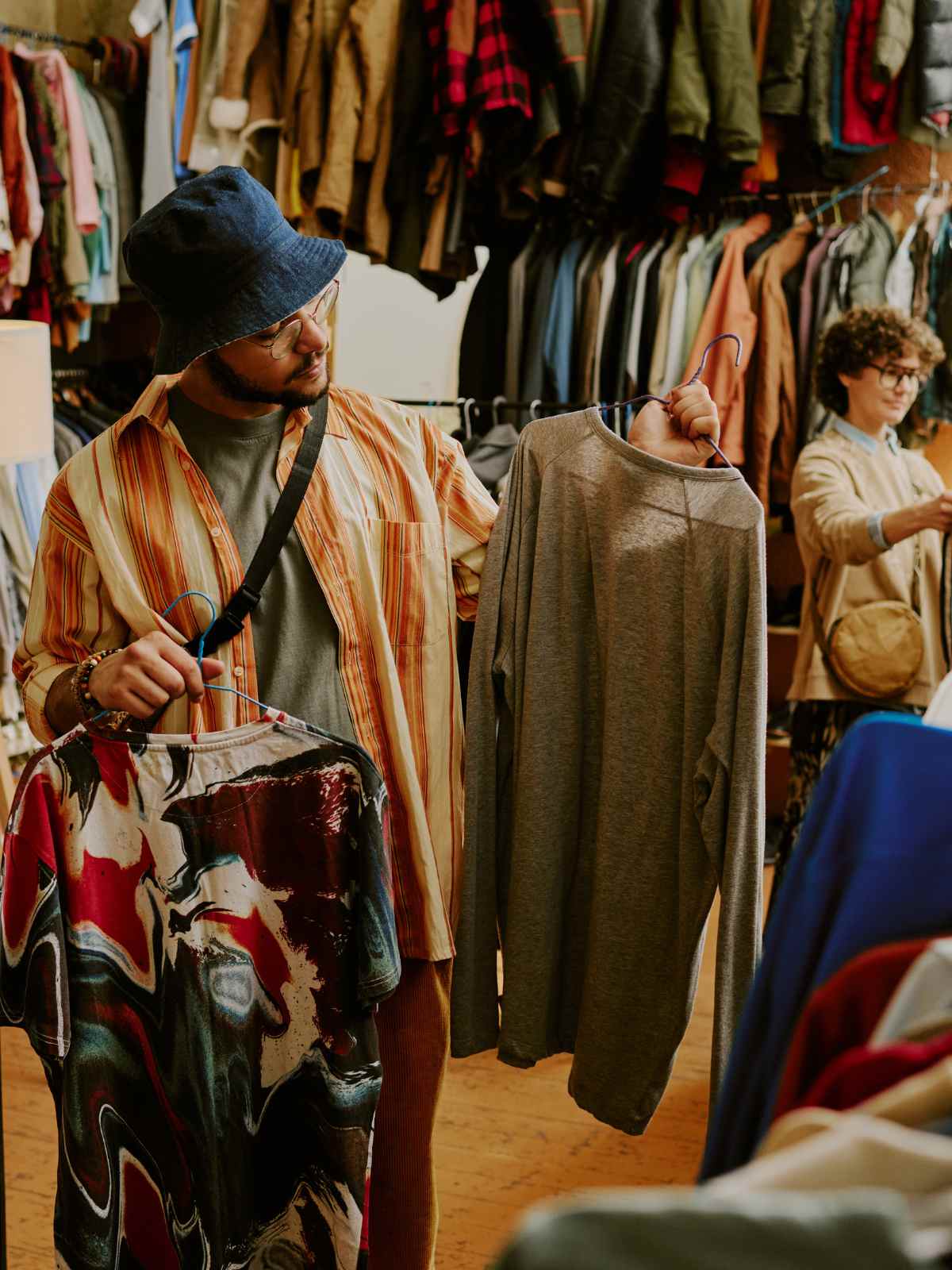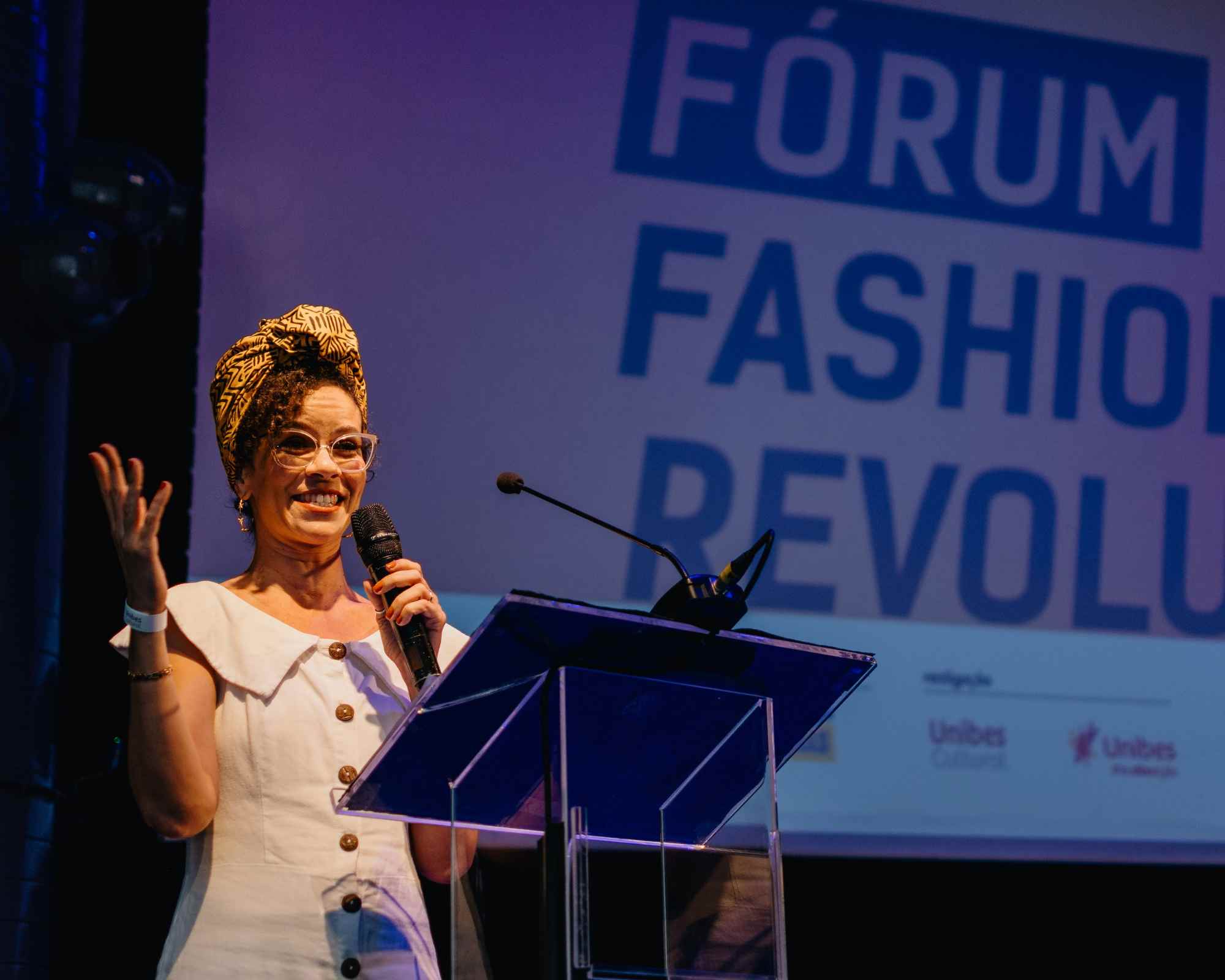In just 10 years, Fashion Revolution has built an astonishing network of global activists united in their hope for a better industry. Here, the organisation’s country coordinators from around the world share their hopes for the future.
A decade of pushing the fashion industry forward
Fashion Revolution has achieved a lot in its first decade. Founded by Orsola de Castro and Carry Somers, the organisation has launched highly visible campaigns like #WhoMadeMyClothes and Good Clothes, Fair Pay—taking the most pressing issues in fashion to a wide audience. It also created the Global Fashion Transparency Index, an annual research project that now charts the transparency of 250 of the world’s largest and most powerful brands in order to leverage citizens’ activism and call for regulation in the industry.
To commemorate the organisation’s tenth anniversary, we asked its activists where the most urgent change needs to happen and what their hopes are for the next decade in sustainable fashion.
Martina Mareková Kuipers, country coordinator, Slovakia
‘More design, less waste’—on hope for the next 10 years
“As little textile waste as possible—in production and also in our wardrobes. More design, less waste. And it goes without saying that there should be some sustainability in the lives of garment workers producing these sustainable designs. The biggest changes need to be done in the legislation, and that will effect positive changes in the whole industry.”
Ysabl Dobles, country coordinator, Philippines
‘Holding brands accountable’—on where we need change
“The transformation I yearn for in the fashion industry centres on transparency—a beacon guiding us towards a more ethical and accountable future. Transparency isn’t just about shedding light on supply chains and production processes, it’s about holding brands accountable for their actions or inactions.
“Imagine a world where every garment tag tells a story, revealing not just its style, but also its journey from sourcing to creation, and the impact it leaves on both people and the planet.”
Melissa Tan, country coordinator, Malaysia
‘Cut off the puppet strings of marketing and greenwashing’—on hope for the future
“My hope is for our society and culture to significantly shift into a deep connection with our world and all living things. There would no longer be a differentiation between ‘sustainable’ or ‘mainstream’ fashion. Fashion would just be authentic self-expression centred in deep appreciation and care for the people and resources that went into every garment. The true beauty and joy of fashion.
“And I would like to see change happen in our relationship with fashion. Most of us are manipulated into thinking what we have and who we are is not enough. That we have to be something else, that there’s always going to be the next trend to chase, or outfit to buy and mimic.
“I want to see us all reinvent how we relate to fashion and transform it into healthy self-expression and creativity. We cut off the puppet strings of marketing and greenwashing, and become a society that has dismantled the programming of overconsumption.”
We cut off the puppet strings of marketing and greenwashing, and become a society that has dismantled the programming of overconsumption.
Melissa Tan – country coordinator, Malaysia
Shruti Singh, country coordinator, India
‘Designing for circularity’—on the urgent change we need
“The most significant change needed in the fashion industry lies at its very core: designing for circularity. Imagine a future where fashion is crafted with purpose at every decision—where shorter supply chains, culturally rooted practices, and the use of alternative planet-friendly materials become the norm.
“This means tackling overproduction, turning our backs on toxic dyes and materials, committing to durability, and ensuring that what is created is built to last and can be safely integrated back into fashion supply chains.
“I believe that radical and honest progress towards a regenerative fashion ecosystem demands open-source collaboration within the industry and a shared commitment to reimagining the future of fashion.”
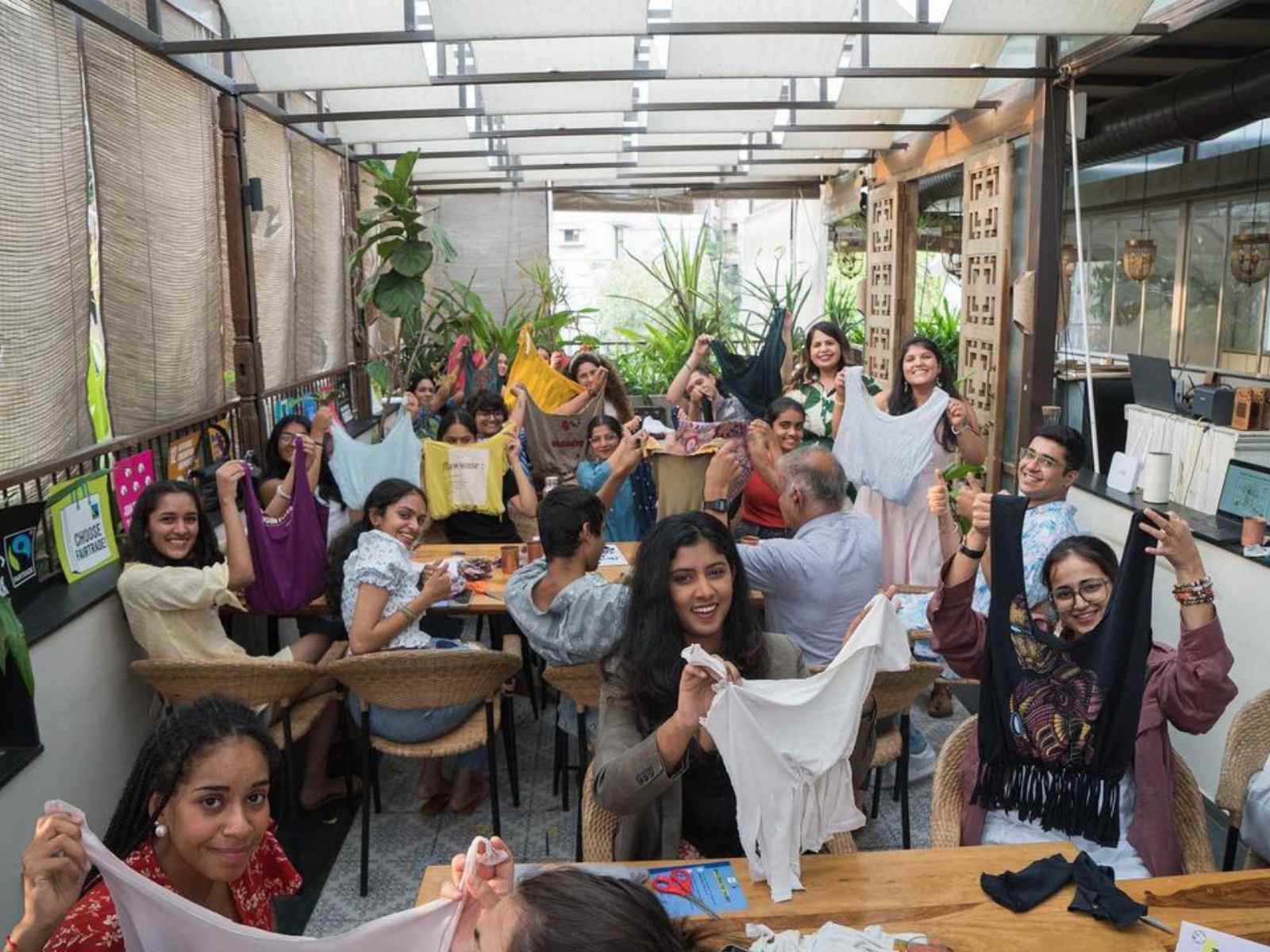
A Fashion Revolution India event
Elise Epp, country coordinator, Canada
‘We can’t rely on corporations to ‘choose’’—on where we need change
“Fashion Revolution started with the question #WhoMadeMyClothes? yet issues of safety and justice for workers still need to be meaningfully addressed by the fashion industry. Brands will release “sustainable” collections focused on materials, but not a living wage collection or a safe working conditions collection.
“We cannot rely on corporations to choose to make these changes themselves—they have shown that they are not reliable self-regulators. Fortunately, there are movements working towards groundbreaking legislation that really could transform the industry. I hope these laws are passed with robust enforcement mechanisms and then replicated around the world.”
Haleema Mekani, country coordinator, Zimbabwe
‘The world has a lot to learn about how to embody the principles of circular living’—on where we need change
“As Fashion Revolution reaches its first decade milestone, I would like to see the most change happen in the way we see, report, and understand the ways small communities—especially in Africa—have championed a sustainable creative lifestyle not as a newfound need but as a natural way of being.
“The world has a lot to learn about how to embody the principles of circular living, sustainable practices, and working with nature as the most organic and innately logical thing to do, and this is a way of living that has existed in many Indigenous African communities for centuries. If we begin to change the perception of Africa and have more contextualised narratives to sustainability, a whole world of adaptable and meaningful tools can become available to change people and the world.”
The world has a lot to learn about how to embody the principles of circular living, sustainable practices, and working with nature as the most organic and innately logical thing to do… this way of living has existed in many Indigenous African communities for centuries.
Haleema Mekani – country coordinator, Zimbabwe
Ariane Piper, country coordinator, Germany
‘Consumers would understand that their shopping behaviour has a crucial impact’–on change in the future
“I wish that consumers would understand that their shopping behaviour has a crucial impact on our planet and people. Consumers need to understand that not only the style of clothing in their wardrobes are making a difference but their choices on the amount of clothing they buy.”
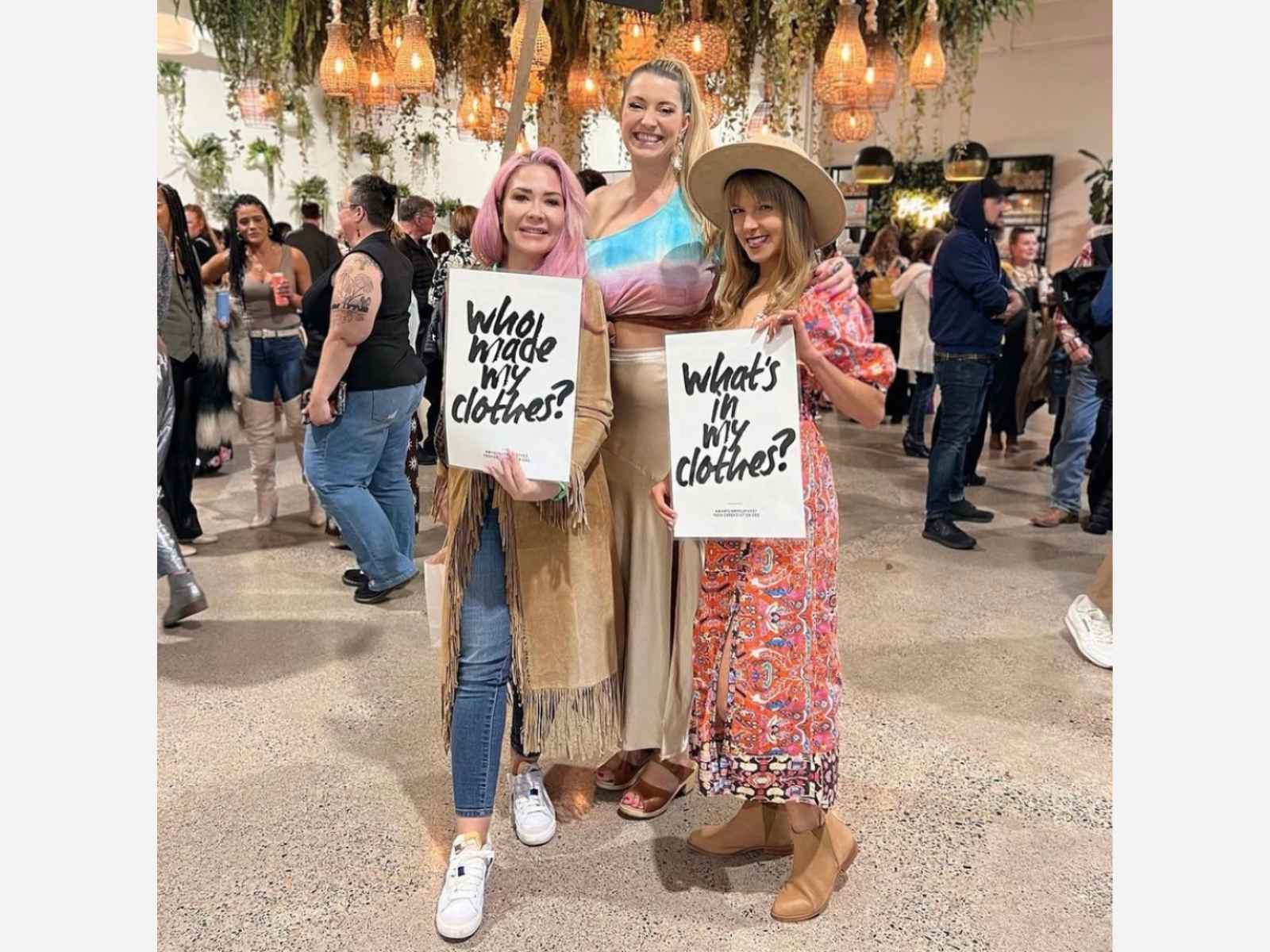
Fashion Revolution US attendees
Wangari Nyanjui, country coordinator, Kenya
‘Africans take up their rightful place as innovators’—on hope for the next decade
“My hope is that Africans take up their rightful place as innovators, creators and custodians of sustainable practices and knowledge.”
Macy Nguyen, country coordinator, Vietnam
‘Over-reliance on trends and the culture of constant consumption’—on what fashion should leave behind
“I hope that fashion will leave behind its over-reliance on trends and the culture of constant consumption and production that it fosters. The fast-paced trend culture perpetuates a rapid turnover of clothing styles, leading to excessive waste and environmental degradation.
“Instead, I hope the fashion industry will shift towards a more timeless and enduring approach to design, where quality, craftsmanship, and longevity take precedence. This would encourage consumers to invest in pieces that they truly love and will cherish for years to come, reducing the need for constant purchasing and minimising the industry’s footprint.
“It would also prioritise the preservation of traditional fashion practices and cultures. By valuing the rich heritage of various communities around the world, the industry can foster greater inclusivity and diversity, while also promoting sustainable practices that honour the planet and its people.”
Isabella Luglio, educational and project coordinator, Brazil
‘The conversation about degrowth in the fashion sector will be common ground’—on hope for the future
“I hope that in the next 10 years, the conversation about degrowth in the fashion sector will be common ground and people and nature will be placed above profits.
“I also hope that fashion leaves deforestation practices behind. It’s absurd that the industry still relies on biodiversity destruction in the Global South for the production of clothes.”
How to get involved in the Fashion Revolution
The great thing about Fashion Revolution’s global approach is that you don’t have to be in a specific place to help bring about change. From asking brands #WhoMadeMyClothes? to joining an interactive webinar, there are lots of actions you can take. Read our guide on what to do this Fashion Revolution Week, and then check out our interview with the person behind the Fashion Transparency Index, policy and research manager Liv Simpliciano.

